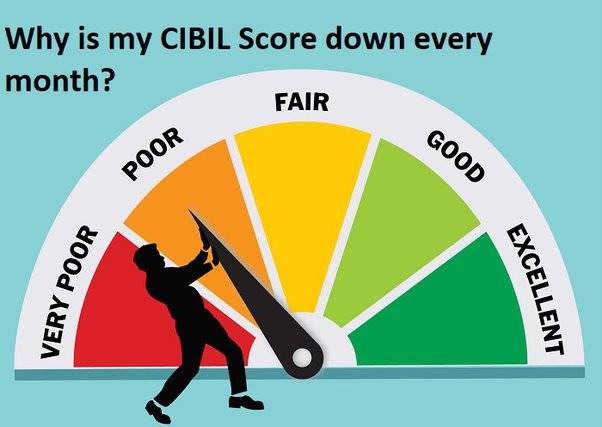In today’s fast-paced financial world, emergencies like medical expenses, sudden repairs, or urgent travel can strike without warning. For those with a low CIBIL score, securing a loan during such critical moments can feel daunting. While urgent loans offer a lifeline, they also come with their own set of challenges. This blog explores the risks and rewards of obtaining urgent loans for individuals with low CIBIL scores, helping you make informed financial decisions.
What are a CIBIL Score, and Why Does it Matter?
A CIBIL score, ranging from 300 to 900, represents your creditworthiness. It is calculated based on your repayment history, credit utilization, credit mix, and the length of your credit history.
- 750 and above: Excellent – likely to secure loans easily.
- 650–749: Good – loan approvals are possible but not guaranteed.
- Below 650: Low – lenders perceive this as a risky score, making loan approvals challenging.
For urgent financial needs, a low score narrows your options, pushing you toward loans specifically designed for high-risk borrowers.
Understanding Urgent Loans
Urgent loans are fast-tracked, short-term loans aimed at providing quick financial relief. They are often unsecured and require minimal documentation, making them accessible even to individuals with low credit scores.
Types of Urgent Loans
- Payday Loans: Short-term loans due on your next payday.
- Personal Loans for Low Credit: Specifically tailored for individuals with poor credit scores.
- Gold Loans: Secured loans where gold is pledged as collateral.
- Loan Against Collateral: Loans backed by property, fixed deposits, or other valuable assets.
- P2P Lending: Borrowing from individuals via peer-to-peer platforms.
Rewards of Urgent Loans for Low CIBIL Borrowers
1. Quick Approval Process
Urgent loans are processed faster than traditional loans. Many lenders approve and disburse these loans within 24–48 hours, making them ideal for emergencies.
2. Minimal Documentation
Most urgent loans require basic documents such as identity proof, address proof, and income verification. This reduces the time and hassle of applying.
3. Accessibility
For individuals with a low CIBIL score, traditional banks may deny loans outright. However, alternative lenders like NBFCs, FinTech companies, and P2P platforms are more flexible.
4. Opportunity to Improve Credit Score
If managed responsibly, repaying an urgent loan on time can boost your credit score over time. This is especially beneficial for rebuilding your creditworthiness.
5. Wide Range of Options
From gold loans to payday loans, there are various types of urgent loans that cater to different financial needs. Secured loans, in particular, offer better terms for low-credit borrowers.
Risks of Urgent Loans for Low CIBIL Borrowers
While urgent loans offer financial relief, they come with inherent risks, especially for individuals with low credit scores.
1. High Interest Rates
Lenders compensate for the risk of lending to low-credit individuals by charging higher interest rates. Payday loans, for instance, can have annual percentage rates (APRs) exceeding 36%.
2. Short Repayment Tenures
Urgent loans typically have shorter repayment periods, ranging from a few weeks to a few months. Failure to repay within this tenure can result in penalties and additional interest charges.
3. Risk of Over-Borrowing
The ease of accessing urgent loans can tempt borrowers to take multiple loans simultaneously, leading to a debt spiral that’s difficult to escape.
4. Collateral Risks
Secured loans like gold loans or loans against property come with the risk of losing your pledged assets if you fail to repay the loan.
5. Hidden Fees
Some lenders impose high processing fees, prepayment penalties, or late payment charges, increasing the overall cost of borrowing.
6. Negative Impact on Credit
Defaulting on an urgent loan can further lower your CIBIL score, making future borrowing even more difficult.
How to Minimize Risks When Taking an Urgent Loan
If you’re considering an urgent loan with a low CIBIL score, follow these strategies to mitigate risks:
1. Evaluate Your Financial Situation
Before applying, assess whether you truly need the loan or if there are alternative solutions, such as borrowing from friends or family.
2. Choose the Right Lender
Compare lenders to find one offering the most favorable terms. Opt for reputable NBFCs, FinTech platforms, or banks with transparent policies.
3. Read the Fine Print
Understand the loan agreement thoroughly, including interest rates, processing fees, prepayment charges, and repayment terms.
4. Borrow Only What You Need
Avoid over-borrowing by calculating the exact amount required to address your emergency.
5. Plan Your Repayment
Ensure you have a repayment plan in place before taking the loan. Set aside funds or adjust your budget to accommodate EMIs.
6. Monitor Your Credit Utilization
Keep your credit utilization ratio low by not exhausting your credit limit. This helps improve your CIBIL score over time.
How to Choose the Right Urgent Loan
Selecting the right urgent loan can make a significant difference in managing your financial situation. Consider these factors:
1. Loan Type
- For smaller amounts: Payday loans or P2P lending.
- For larger amounts: Secured loans like gold loans or loans against property.
2. Interest Rate
Look for the lowest possible interest rate by comparing lenders.
3. Repayment Tenure
Choose a loan with a manageable repayment period that aligns with your financial capacity.
4. Eligibility Criteria
Select a lender with lenient eligibility requirements for low-CIBIL borrowers.
5. Lender Reputation
Opt for trusted financial institutions to avoid scams or predatory lending practices.
Case Study: Riya’s Journey to Managing an Urgent Loan
Riya, a freelance graphic designer, faced a sudden medical emergency requiring ₹2 lakhs. With a CIBIL score of 630, traditional banks rejected her application. Here’s how she managed:
- Chose a Gold Loan: Pledged her gold jewelry to secure a loan at 12% interest.
- Planned Repayment: Allocated 30% of her monthly income to repay the EMIs.
- Boosted Credit Score: Timely payments improved her CIBIL score to 690 within six months.
This experience taught Riya the importance of financial discipline and proactive credit management.
Alternatives to Urgent Loans for Low CIBIL Borrowers
If an urgent loan feels too risky, explore these alternatives:
- Borrow from Friends or Family: Interest-free loans from trusted individuals.
- Sell Unused Assets: Liquidate non-essential assets to generate funds.
- Employer Advance: Request an advance salary from your employer.
- Government Schemes: Explore initiatives like Mudra Loans for small businesses.
Final Thoughts
Urgent loans can be a lifesaver for those with low CIBIL scores, but they come with risks that require careful management. By weighing the pros and cons, choosing the right type of loan, and planning your finances responsibly, you can navigate emergencies without jeopardizing your financial health.
Remember, while securing an urgent loan solves immediate issues, improving your CIBIL score through timely repayments and better credit management is the key to long-term financial stability. With the right approach, you can overcome today’s challenges and build a stronger financial future.
Get in touch with us today at www.Settleloan.in and embark on your path to financial freedom



